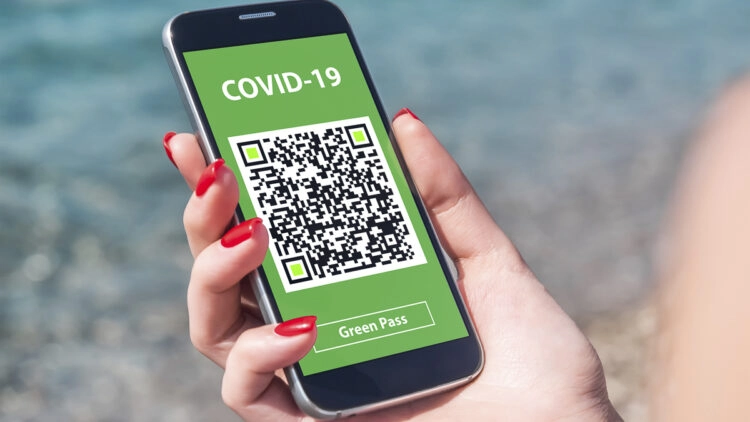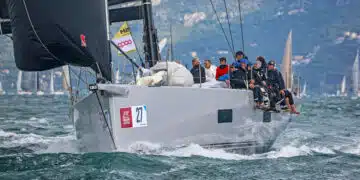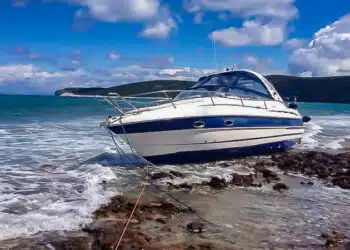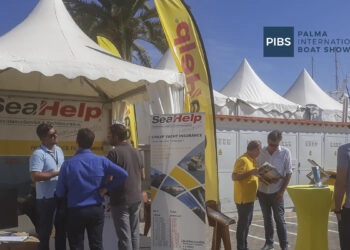One can slowly but surely see a light at the end of the Corona tunnel with regard to travel from Germany and Austria to Croatia, Slovenia and Italy both on entry to the aforementioned countries and on the return journey – this should make Whitsun vacations possible again in some countries. The EU has already launched the so-called “green passport” on March 17, 2021, which, once introduced preferably in June 2021, will allow vaccinated or tested individuals and all those who have already survived the COVID-19 disease free movement of persons within the EU.
Green passport to bring freedom to travel – single-handedly if necessary
Preparations for the mandatory introduction of green passports, or “green certificates” as they are officially called within the EU member states, are already in full swing, and the database is also to be fully installed in the EU’s data center by May 7 and tested in conjunction with several countries. We can only hope that the “green passport” will not suffer a fate similar to that of the orders for vaccine doses coordinated by the EU. Italy has already taken precautions: Prime Minister Mario Draghi declared that Italy wants to open up to tourists again from mid-May and, if necessary, issue its own green passport until there is an EU-wide regulation. How exactly it is designed and whether it applies only to domestic travel in Italy or then also tourists from abroad may enter, is currently not yet determined.
Germany: From Saturday quarantine obligation could fall
Meanwhile, things are also moving in Germany at the state level. Bavaria’s Prime Minister Markus Söder announced that if the 7-day incidence is below 100, outdoor restaurants as well as hotels and vacation homes with a hygiene concept could reopen in the Free State from May 10. Thus at least Pentecost in the beer garden should be secured. Already starting from 5 May completely inoculated persons are to be put negative tested on an equal footing. Even if the appropriate resolution is missing, the return from Austria, Croatia, Slovenia and Italy could end then for Whitsun vacationers without quarantine obligation. Resolutions to this effect are expected in the next few days. Other German states are planning to follow this example.
In Austria, too, some relaxations are to come into force from May 19, in particular the quarantine obligation for return trips from certain countries is to be dropped. A negative Corona test, proof of vaccination, or recovery from a COVID-19 infection will then be sufficient to avoid quarantine if the vacation country in question does not belong to the dark red region, according to the EU map (ECDC).
Bad incidence values in Croatia (as of May 3)
While the 14-day incidence in Germany is 346.07, Austria is only marginally higher at 354.63, and Italy has an incidence value of 283.7, Croatia is currently the worst performer, with 668.4 new coronavirus infections per 100,000 population in 14 days. Slovenia is also likely to be only marginally better off than Croatia, with a 14-day incidence value of 418.1. But as is well known, a lot of water can still flow down the Danube until May 19. Only Istria, with a 14-day incidence of 89.5 and a 7-day incidence of 40.2 gives hope for a Croatia vacation at Pentecost.
Decreasing incidence chart gives hope
Additional hope can be drawn from the charts: incidence numbers are currently falling in both Croatia, Italy and Slovenia and, as was the case last spring, could fall below the minimum numbers required for entry facilitation for travelers returning to Austria and Germany without quarantine.
Entering Croatia
Incidentally, when entering Croatia, the antigen test, not older than 48 hours, which still had to be repeated after a limited period of stay in Croatia, is now sufficient. This repetition has now been eliminated. Vaccinated persons who entered Croatia more than 14 days ago with a second dose or a sufficient single dose, persons who overcame COVID-19, may enter Croatia on the 11th day and at the latest until the 180th day after the positive test without further testing. The same applies to persons who have survived an illness with coronavirus and have been vaccinated with at least one dose may waive the test. Children under 7 years of age do not need a test. A regulation, but one that would need to be reexamined to see if it makes sense in terms of the group of people who have been sick and those who have been vaccinated.
Returning to Austria
For entry into Austria currently still applies: persons who do not meet the requirements of paragraph 1 Z 1 or 2 (entry from EU/EEA countries as well as Switzerland, Andorra, Monaco, San Marino, – unrestricted entry if they enter on an in Annex A of the COVID-19 entry regulation, i.e. Australia, Iceland, New Zealand, Singapore, South Korea, Vatican, editor’s note), have to carry a medical certificate or a test result according to § 2 and present it at a control. If the medical certificate or test result cannot be presented, a molecular biological test for SARS-CoV-2 or antigen test for SARS-CoV-2 must be carried out immediately, in any case within 24 hours after entry. In addition, a ten-day quarantine according to § 3 has to be started immediately. Quarantine shall be deemed to have ended if a molecular biological test for SARS-CoV-2 or antigen test for SARS-CoV-2 is performed no earlier than the fifth day after entry and the test result is negative. The cost of the test must be borne by the patient. The negative test result must be presented at a control. Or to put it briefly: This also applies to Italy, Croatia and Slovenia at least until May 19.
From this date, however, significant relaxations are expected for Austrians also when entering Austria. Chancellor Sebastian Kurz is also in favor of going it alone in the tourism sector if the EU continues to slam on the brakes.
Entering Slovenia
For entry to Slovenia, except transit, there are following regulations:
Domestic quarantine is ordered for persons coming from countries or from administrative units of countries on the red list, unless they present one of the following proofs upon entry into the Republic of Slovenia:
- a negative test for SARS-CoV-2 (COVID-19) by the polymerase chain reaction method (hereinafter PCR test), which is not older than 48 hours since smear collection and was performed in a Member State of the European Union, a Member State of the Schengen Area, Australia, Israel, Canada, New Zealand, Russia, the United Kingdom of Great Britain and Northern Ireland or the United States of America;
- a certificate of a positive PCR test result older than 10 days, unless otherwise evaluated by the physician, but not older than 6 months, or a medical certificate stating that the person has recovered from an illness with Covid-19 and that not more than 6 months have elapsed since the onset of symptoms;
- a certificate of vaccination against Covid-19 stating that.
- since receiving the 2nd dose of the vaccine COMIRNATY from the manufacturer Biontech/Pfizer at least 7 days,
- since receipt of the 2nd dose of the vaccine COVID-19 Vaccine of the manufacturer Moderna at least 14 days,
- since receiving the 1st dose of vaccine Vaxveria (COVID-19 Vaccine) from the manufacturer AstraZeneca at least 21 days,
- since receipt of the vaccine Vaccine Janssen of the manufacturer Johnson & Johnson at least 14 days,
- since receipt of the 1st dose of the vaccine Covishield of the manufacturer Serum Institute of India/AstraZeneca at least 21 days,
- since receipt of the 2nd dose of the vaccine Sputnik V of the manufacturer Russia ́s Gamaleya Research Institute of Epidemiology and Microbiology at least 14 days,
- since receipt of the 2nd dose of the vaccine CoronaVac from the manufacturer Sinovac Biotech at least 14 days or
- since receipt of the 2nd dose of the vaccine COVID-19 Vaccine of the manufacturer Sinopharm at least 14 days have passed.
(6) The certificates referred to in point 2 of the previous paragraph will be taken into account if they were issued in a Member State of the European Union, a Member State of the Schengen Area, Australia, Israel, Canada, New Zealand, Russia, the United Kingdom of Great Britain and Northern Ireland, or the United States of America.
(7) When domestic quarantine is ordered for a person without residence in the Republic of Slovenia, it is ordered at the address of his or her actual residence. The costs incurred in connection with the ordered quarantine shall be borne by the person concerned. If the foreign national who does not have a residence in the Republic of Slovenia cannot prove a residential address where the quarantine will be carried out, he or she will be allowed to enter the Republic of Slovenia only if appropriate accommodation is available for carrying out the quarantine.
Entry Italy
For entry into Italy, according to information from the Italian embassy:
For people who have only been to EU+ countries, the UK or Israel: Those who have been only in EU+ countries (see list in point 1), the UK or Israel in the 14 days prior to entry into Italy must present a negative PCR or antigen test performed within the 48 hours prior to entry, undergo a 5-day quarantine (regardless of the test result) and be retested at the end of the 5 days. He/she may complete the quarantine in his/her own home or at a residence of his/her choice. Upon arrival in Italy, travel to the residence chosen for quarantine must continue by private transportation (although onward travel to a domestic destination by connecting flight is permitted, provided the airport area is not left). Children under 2 years of age do NOT need to be tested.
Travel relief looms for Whitsun
One thing is already becoming apparent: In Germany and Austria, people are already talking more or less publicly about relaxations that will also affect travel at Whitsun. The German Health Minister Spahn wants to bring a regulation on the way already until the coming weekend, May 7, which allows at least vaccinated and recovered people to return without subsequent quarantine when traveling to EU countries. Whether these travel facilitations will then also apply to those who have tested negative remains to be seen, but it is certainly to be expected. And also Austria may certainly not do without the German guests to Whitsun, only who wants to accommodate German guests again, would have to permit inevitably also its citizens the journey abroad to the Adriatic Sea. And that would turn the faint light at the end of the tunnel into a major spotlight. Or, the other way around: falling incidence rates in Italy, Slovenia and Croatia could bring the new freedom to travel as early as Whitsun.
SeaHelp informs: Travel at Pentecost to Croatia, Italy, Slovenia
Since in these days, where the travel activities for Whitsun are planned, a lot is happening on the subject of “Whitsun vacations in Croatia, Slovenia, Italy” for Austrians and Germans, we will report here again and again about possible changes in the situation, in order to inform the users of this homepage reliably and quickly about further developments.













